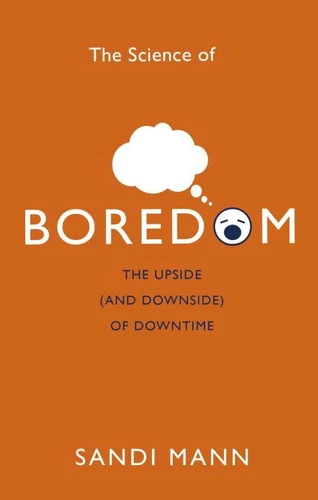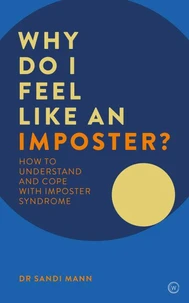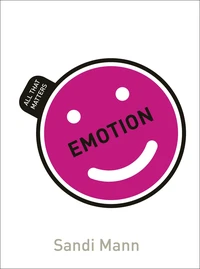The Science of Boredom. Why Boredom is Good
Par :Formats :
Disponible dans votre compte client Decitre ou Furet du Nord dès validation de votre commande. Le format ePub protégé est :
- Compatible avec une lecture sur My Vivlio (smartphone, tablette, ordinateur)
- Compatible avec une lecture sur liseuses Vivlio
- Pour les liseuses autres que Vivlio, vous devez utiliser le logiciel Adobe Digital Edition. Non compatible avec la lecture sur les liseuses Kindle, Remarkable et Sony
- Non compatible avec un achat hors France métropolitaine
 , qui est-ce ?
, qui est-ce ?Notre partenaire de plateforme de lecture numérique où vous retrouverez l'ensemble de vos ebooks gratuitement
Pour en savoir plus sur nos ebooks, consultez notre aide en ligne ici
- Nombre de pages336
- FormatePub
- ISBN978-1-4721-3600-8
- EAN9781472136008
- Date de parution21/03/2016
- Protection num.Adobe DRM
- Infos supplémentairesepub
- ÉditeurRobinson
Résumé
Are we living in an age where we are more boredom-prone? Or are other people boring us? Or could we be that boring person?! In our current information age, we are constantly connected to technology, and have so many varied ways to spend our leisure time that we should all surely never know what boredom feels like. Yet, boredom appears to be on the rise; it seems that the more we have to stimulate us, the more stimulation we crave.
In a quest to relieve our boredom, we engage in dangerous risk-taking - from extreme sports to drugs to gambling to anti-social behaviour, or we overindulge in shopping or eating. The Science of Boredom explores the causes and consequences of boredom in the fast-paced twenty-first century. Parents are desperate to keep their children entertained during every waking moment, the education system is geared towards interactivity, and attention spans are dropping as we use multiple devices at all times.
But the world of work can be increasingly repetitive and routine, and we are losing the ability to tolerate this everyday tedium. Using Sandi Mann's own ground-breaking research into boredom, this book tells the story of how we act, react and cope when we are bored, and argues that there is a positive side to boredom. It can be a catalyst for humour, fun, reflection, creativity and inspiration. The radical solution to the 'boredom problem' is to harness it rather than try to avoid it.
Allowing yourself time away from constant stimuli can enrich your life. We should all embrace our boredom and see the upside of our downtime.
In a quest to relieve our boredom, we engage in dangerous risk-taking - from extreme sports to drugs to gambling to anti-social behaviour, or we overindulge in shopping or eating. The Science of Boredom explores the causes and consequences of boredom in the fast-paced twenty-first century. Parents are desperate to keep their children entertained during every waking moment, the education system is geared towards interactivity, and attention spans are dropping as we use multiple devices at all times.
But the world of work can be increasingly repetitive and routine, and we are losing the ability to tolerate this everyday tedium. Using Sandi Mann's own ground-breaking research into boredom, this book tells the story of how we act, react and cope when we are bored, and argues that there is a positive side to boredom. It can be a catalyst for humour, fun, reflection, creativity and inspiration. The radical solution to the 'boredom problem' is to harness it rather than try to avoid it.
Allowing yourself time away from constant stimuli can enrich your life. We should all embrace our boredom and see the upside of our downtime.
Are we living in an age where we are more boredom-prone? Or are other people boring us? Or could we be that boring person?! In our current information age, we are constantly connected to technology, and have so many varied ways to spend our leisure time that we should all surely never know what boredom feels like. Yet, boredom appears to be on the rise; it seems that the more we have to stimulate us, the more stimulation we crave.
In a quest to relieve our boredom, we engage in dangerous risk-taking - from extreme sports to drugs to gambling to anti-social behaviour, or we overindulge in shopping or eating. The Science of Boredom explores the causes and consequences of boredom in the fast-paced twenty-first century. Parents are desperate to keep their children entertained during every waking moment, the education system is geared towards interactivity, and attention spans are dropping as we use multiple devices at all times.
But the world of work can be increasingly repetitive and routine, and we are losing the ability to tolerate this everyday tedium. Using Sandi Mann's own ground-breaking research into boredom, this book tells the story of how we act, react and cope when we are bored, and argues that there is a positive side to boredom. It can be a catalyst for humour, fun, reflection, creativity and inspiration. The radical solution to the 'boredom problem' is to harness it rather than try to avoid it.
Allowing yourself time away from constant stimuli can enrich your life. We should all embrace our boredom and see the upside of our downtime.
In a quest to relieve our boredom, we engage in dangerous risk-taking - from extreme sports to drugs to gambling to anti-social behaviour, or we overindulge in shopping or eating. The Science of Boredom explores the causes and consequences of boredom in the fast-paced twenty-first century. Parents are desperate to keep their children entertained during every waking moment, the education system is geared towards interactivity, and attention spans are dropping as we use multiple devices at all times.
But the world of work can be increasingly repetitive and routine, and we are losing the ability to tolerate this everyday tedium. Using Sandi Mann's own ground-breaking research into boredom, this book tells the story of how we act, react and cope when we are bored, and argues that there is a positive side to boredom. It can be a catalyst for humour, fun, reflection, creativity and inspiration. The radical solution to the 'boredom problem' is to harness it rather than try to avoid it.
Allowing yourself time away from constant stimuli can enrich your life. We should all embrace our boredom and see the upside of our downtime.














